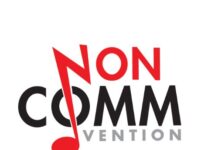
(By Eric Rhoads) It’s no secret to you and me that radio is reliable in a disaster. Yet it’s refreshing when others “get it,” especially the media reporting on the recent hurricanes and fires, which stated that it’s been local radio that saved lives and communicated when consumers had no power, no cell phone towers, and no television.
But we’ve been here many times before, and soon, when life is back to normal, we’ll still be an old medium and people will again be consumed by their smartphones as their lifeline.
The last major storm from which radio saved lives was when a hurricane hit New York City: Power was out, phones became uncharged, cell towers had no power. We (radio) were the hero again.
But they forgot us.
Tried to buy a radio lately?
Tried to find radio on a car audio unit lately?
It’s not a pretty sight. There isn’t much variety if you can find a radio at all, and it seems that most auto entertainment systems have buried radio. You have to work to find radio. On my aftermarket Pioneer Apple CarPlay System there is no word “radio” on my screen, nor do the abbreviations “AM” or “FM” exist. It merely shows a yellow HD logo. Though I know HD Radio, consumers don’t, so it’s meaningless till you figure it out, and it’s very difficult to change stations or find anything on the radio screen when driving.
So what is the solution?
First, strike while the iron is hot and they still remember experiencing radio as a life saver in the communities impacted by the aforementioned disasters, as well as those who were not.
Run promos or liners something like this…
“Radio Saves Lives. Will It Save Yours in the Next Natural Disaster?”
When cell towers fell in high winds, burned or lost power, the Internet was down, and mobile phones ran out of juice and could not be recharged, it was radio that alerted storm or fire victims.
If you don’t own a portable battery operated radio, get one now. And encourage your smart phone carrier like Apple, Samsung, or Google to put a radio receiver into their phones. Imagine the lives they could have saved by having a radio in every phone.
Plus, let your local congress woman or man know how important radio is in our lives… and that every mobile phone needs a radio in it. Though I’m not big on government requiring radio on their phones, a little pressure might just help the cell phone industry come around to placing radios in all units. Think how many more lives would have been saved?
I’d repeat this to death for the next couple of weeks while these fires and storms are still fresh in people’s minds. Because they will forget soon, till next time, when more lives could have been saved by radio.
To our brothers and sisters in this fine industry who stepped up, risked their own lives, and became a vessel for the local community, we honor and applaud you. This is radio’s finest hour.
Eric Rhoads is chairman of Radio Ink magazine and can be reached at [email protected]






Eric, just emailed you. Why not take this one more step, voice and produce that message yourself, and make the finished audio available as a free download to stations across America? You’re absolutely the right guy for that!
Even though radio can serve audiences in a natural disaster – for those who have a battery-powered radio… and batteries – the appeal of that function is miniscule when compared to the everyday uses for which radio is usually accessed.
Further, touting that potential of radio, even though it is accurate, still seems awfully weak when those capacities are no longer required in the moment.
Radio has many more huge, vicious and cruel fire-breathing dragons continuously scorching its doors to worry about being an available medium in those relatively rare times of crisis.